Planetary Science
-
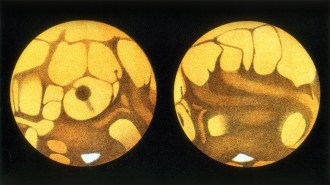 Planetary Science
Planetary ScienceHow alien ‘canals’ sparked debate over life on Mars
In The Martians, journalist David Baron recounts scientific and public debate over purported intelligent life on the Red Planet.
-
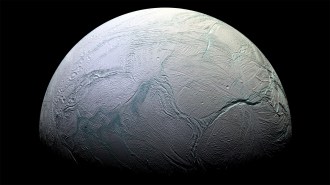 Planetary Science
Planetary ScienceCosmic rays could, in theory, sustain life on other worlds
The hypothesis could extend the search for extraterrestrial life to include frigid planets with thin atmospheres and underground water.
-
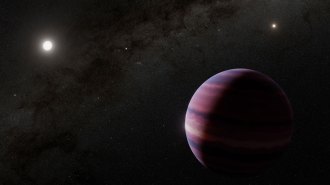 Planetary Science
Planetary ScienceA giant planet may orbit our closest sunlike neighbor
Alpha Centauri A, four light-years from Earth, may host a gas giant. If confirmed, no Earthlike planets orbit in the star’s habitable zone.
-
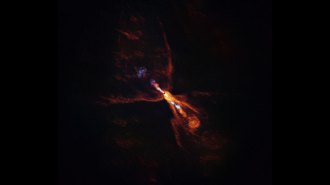 Planetary Science
Planetary ScienceThis star offers the earliest peek at the birth of a planetary system like ours
A young sunlike star called HOPS 315 seems to host a swirling disk of gas giving rise to minerals that kick-start the planet formation process.
-
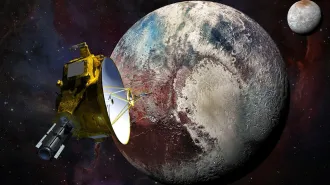 Planetary Science
Planetary ScienceNew Horizons visited Pluto 10 years ago. We’re still learning from it
Over the past decade, researchers have been puzzling through Pluto’s mysteries. Meanwhile, the New Horizons probe heads for interstellar space.
-
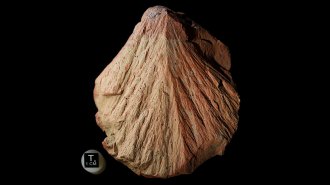 Earth
EarthAn ancient Earth impact could help in the search for Martian life
Strange cone-shaped rocks led scientists to the hidden remains of one of Earth’s oldest asteroid impacts. It could help us find fossil life on Mars.
By Douglas Fox -
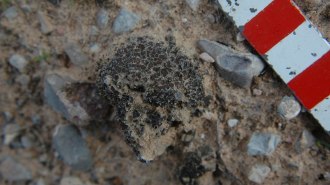 Life
LifeA barrage of radiation couldn’t kill this hardy life-form
A type of lichen was able to survive extreme UV radiation in the lab, suggesting that ozone protection might not be required for life on exoplanets.
-
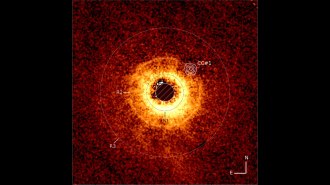 Planetary Science
Planetary ScienceIn a first, the Webb telescope found a planet by actually ‘seeing’ it
Finding a Saturn-sized world around the young star TWA 7 could pave the way for the Webb space telescope’s direct observation of other exoplanets.
By Adam Mann -
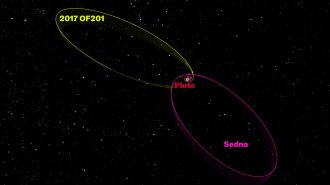 Planetary Science
Planetary ScienceA possible new dwarf planet skirts the solar system’s edge
For the dwarf planet candidate, one trip around the sun takes over 24,000 years. Its orbit challenges a proposed path for a hypothetical Planet Nine.
-
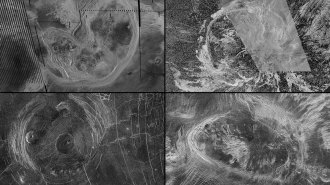 Planetary Science
Planetary ScienceVenus’ tectonics may be actively reshaping its surface
Circular landforms speckling the Venusian surface may be the work of tectonic activity.
By Nikk Ogasa -
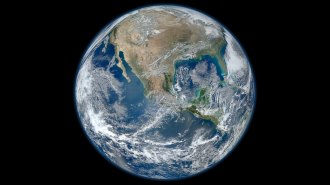 Space
SpaceA passing star could fling Earth out of orbit
Simulations show that the star's tug could send Mercury, Venus or Mars crashing into Earth — or let Jupiter eject our world from the solar system.
By Ken Croswell -
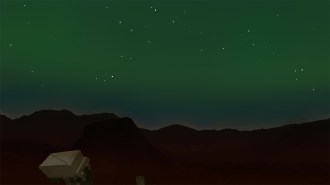 Space
SpacePerseverance takes the first picture of a visible Martian aurora
A faint yet visible Martian aurora is the first instance of the phenomenon spotted from another planet's surface.
By Nikk Ogasa